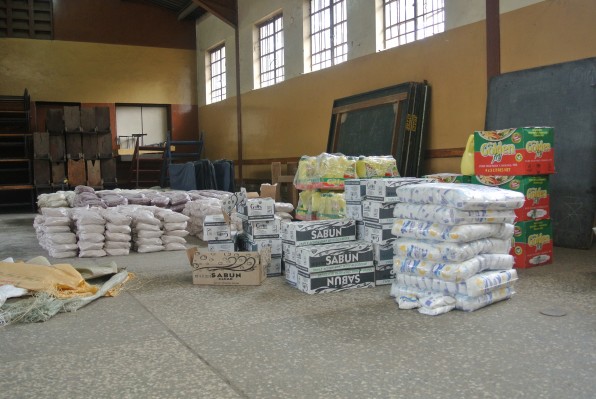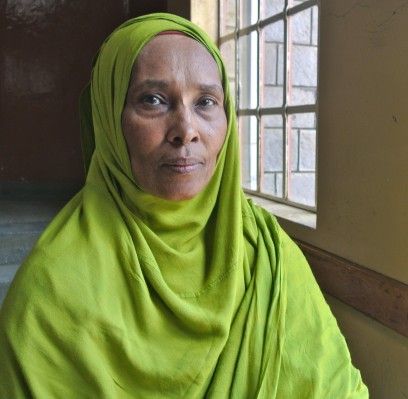Fadumo and her children rarely slept consecutively in the same place while fleeing her war torn country – and sometimes not even inside. Motivated by a genuine fear that government agents from her former country continued to pursue her, the family slept on the floors of other refugees’ apartments, in abandoned buildings and on the streets.
“My basic problem is security,” the mother of two toddlers shares from a local school gymnasium where RefugePoint distributes food once a month to the most vulnerable of refugees. “I keep on moving from one house to another house with my small children. I go to different families and beg for a place to stay. When I don’t find a place, it is very bad for us.”
Without shelter, refugee women and children in particular are at-risk for kidnapping, assault and human trafficking, not to mention malnutrition and illness. Another refugee woman collecting her monthly rations the same afternoon was raped over a year ago while returning home from a small street stand where she sold coffee. The assault led to a pregnancy which put her in even greater danger when her community shunned her – cutting her off from the only security net she had after her husband was abducted by the military in her home country. Learning about her situation, RefugePoint provided the woman emergency medical care and food assistance.
Back in the gymnasium where staff parcel out rice, beans, salt and other essential staples into large straw sacs that women work together to drag across the floor and eventually home Fadumo shares how a recent housing appeal became the start of a series of “RefugePoints,” a term the staff describe as the moment of deliverance from danger and despair to a new path of security and hope.

“I am lucky. I found another refugee family who told me we could stay with them. ”
Unfortunately, with limited resources themselves, the family could not afford to also feed Fadumo and her children. Fortunately, the host mother happened to be attending RefugePoint’s group counseling for survivors of gender-based violence and invited Fadumo to join her at the next session, which is how RefugePoint discovered her plight and enrolled her in the food program.
“You can see that my life has completely changed,” Fadumo exclaims. “Today I am going to cook for my children and I expect by the afternoon they will already be more healthy.”
NOTE: RefugePoint’s Urban Refugee Assistance Program identifies the most vulnerable refugees and provides them the support they need to stabilize their lives. In 2010, the staff delivered 9,717 baskets of food to 1,034 refugees and provided 1,279 months of shelter for 159 of the most at-risk refugees.
